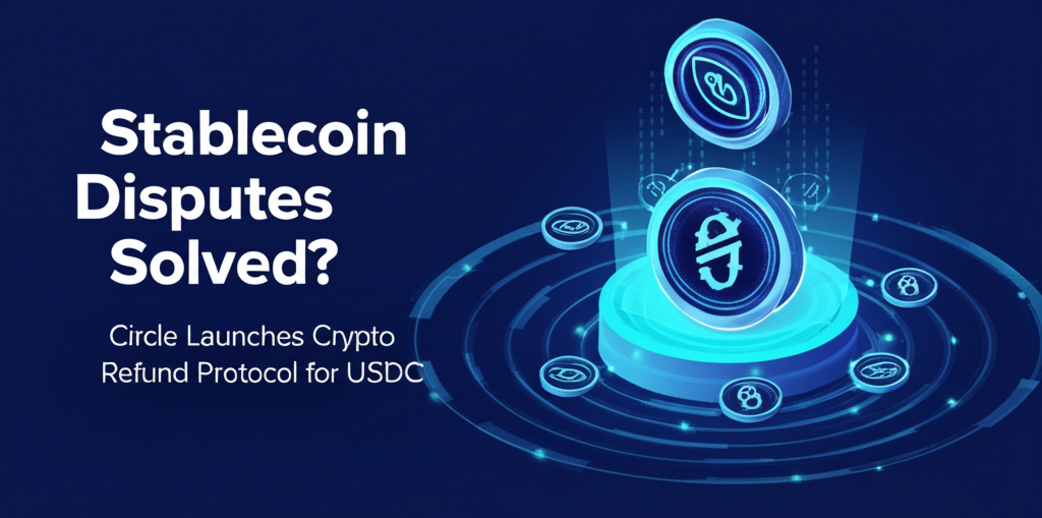Stablecoin Disputes Solved? Circle Launches Crypto Refund Protocol for USDC

Circle, the company behind the popular USDC stablecoin, has introduced an innovative smart contract system named Refund Protocol, aiming to revolutionize stablecoin dispute resolution and bring refund capabilities to digital currency payments.
The firm unveiled the protocol on April 17th via its official channels. Historically, stablecoin transactions mirrored cash deals – final and irreversible once sent, leaving users without recourse if issues arose or funds were sent incorrectly.
Circle’s Refund Protocol addresses this gap by routing payments through a smart contract that holds the funds temporarily in escrow. This mechanism allows a buyer to initiate a refund request if a problem occurs.
An impartial third-party arbiter steps in to mediate disputes. Critically, the arbiter can only authorize the release of funds back to the buyer or forward to the seller; they cannot divert the funds elsewhere. This ensures the process remains non-custodial, meaning control over the assets isn’t centralized.
Introducing Refund Protocol from Circle Research
Refund Protocol brings onchain dispute resolution and refunds to USDC payments without requiring custody or trust in a centralized party.
↳ Transparent, programmable escrow
↳ Disputes mediated by a non-custodial arbiter
↳… [pic.twitter.com/JwDraoDPnI]— Circle Developer (@BuildOnCircle) [April 17, 2025]
The protocol incorporates flexibility, such as allowing sellers early access to funds before a lockup period ends. This requires an off-chain agreement, validated on-chain via digital signature, potentially involving a small fee for the seller.
Designed for ERC-20 tokens, the system offers built-in features for fund lockups, refunds, and dispute mediation. Circle states the objective is to enhance the safety and practicality of onchain payments for everyday use, a crucial step for broader cryptocurrency adoption.
However, Circle acknowledges potential hurdles. Integrating refund addresses can be complex for users relying on custodial wallets or fiat onramps. Furthermore, the protocol incurs higher gas fees than standard token transfers, a factor businesses with high transaction volumes must consider.
Despite these trade-offs, the Refund Protocol marks a significant advancement in making stablecoin transactions more reliable. It provides a trust-minimized framework for addressing real-world payment issues without concentrating control.
